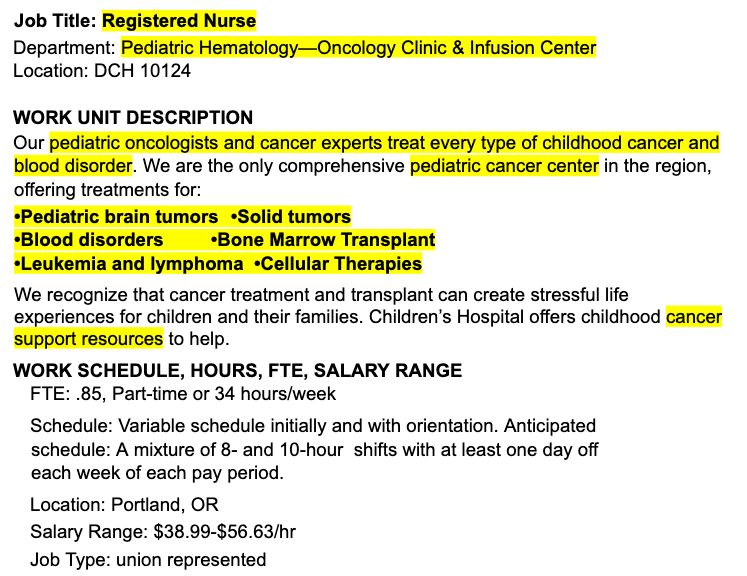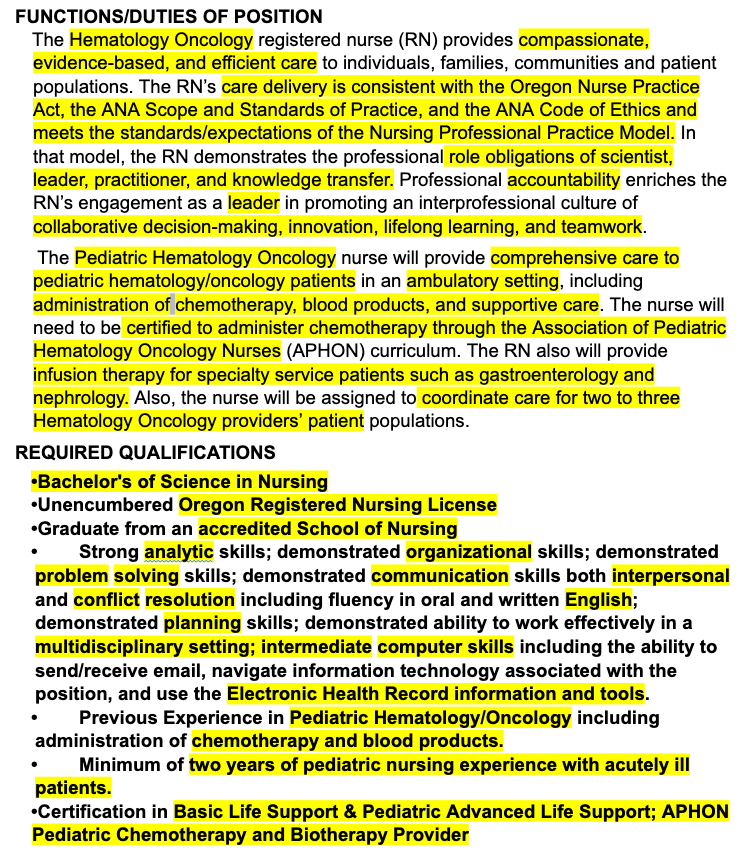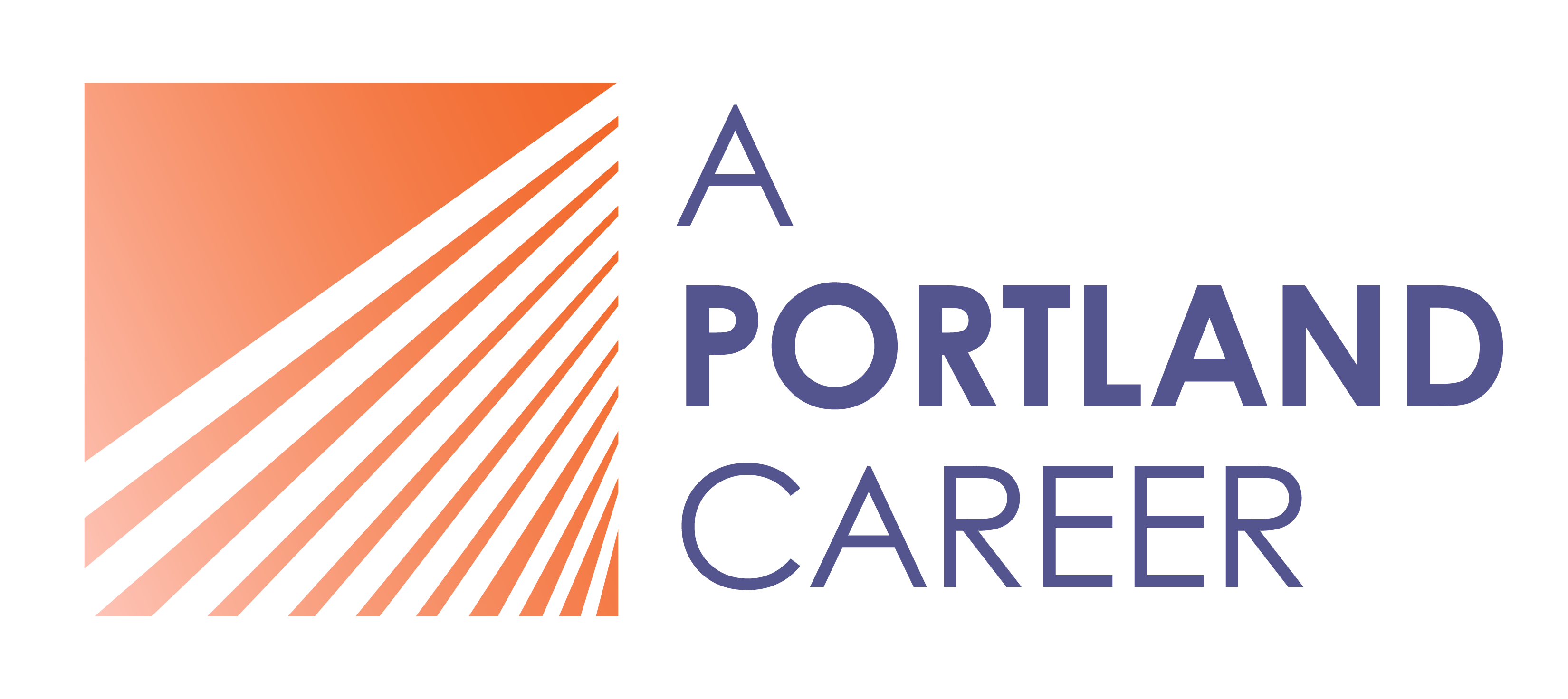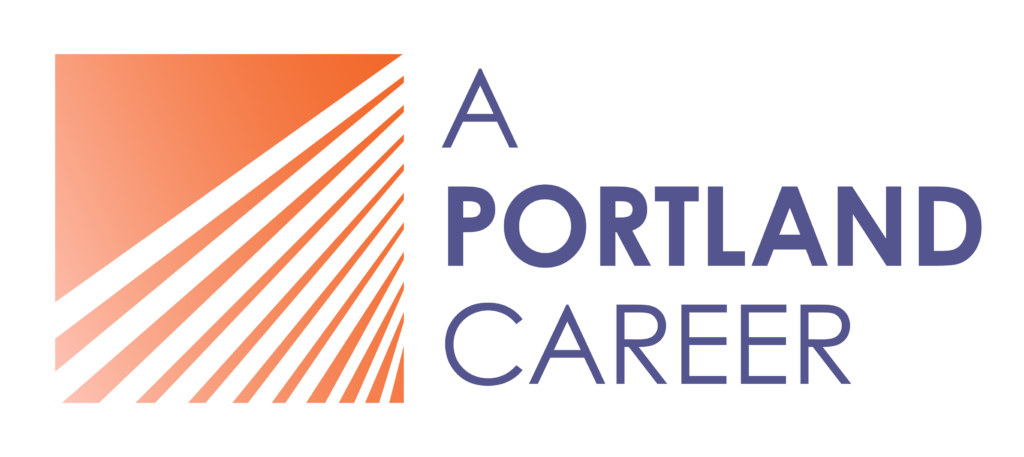Learn how to write your best cover letter with these 11 essential elements. Make a great first impression on your prospective employer, and land that interview!
You need to know how to identify and incorporate resume keywords to write a winning resume that will beat applicant tracking systems (ATS). Here’s how.
How To Identify Resume Keywords for Your Next Job Application
By A Portland Career, and edited by Dan Hahn, M.S., JD Duran, and Suzie Sherman
Confused about keywords? We can make sure your resume is packed with the right ones.

Writing a resume is one of the most crucial tasks in your job search. It would be a real bummer if you didn’t know how to identify the right resume keywords for the job in order to get your resume into the hands of the hiring manager. Resume writing has moved way beyond just listing your past job duties and adding a work history and education section. Let’s learn how to identify and effectively use resume keywords, and land you the interview.
It’s a given that hiring managers seek out the top applicants for their organization’s job postings. But even if you’re the most qualified candidate in the bunch, your resume won’t get seen by human eyes if it doesn’t have the specific keywords for the job that the hiring manager is looking for. How do you make sure you have the best resume, loaded with the right keywords, so you don’t get lost in a sea of other job seekers?
In this article we’ll explain what automated applicant tracking systems (ATS) are and how they determine the fate of your resume. We’ll discuss resume keywords and how to find the specific keywords and phrases for the job description you’re applying for. And we’ll show you how to integrate keywords into your resume writing so that you pass ATS, catch the eyes of the recruiters and hiring team, and land the job interview.
Home → Helpful Articles → Resumes & Cover Letters → How to Identify Resume Keywords for Your Next Job Application
This article is the third in our series on writing successful resumes and cover letters. Read ’em all:
- Plan Your Resume and Land the Job Interview
- Your ATS-Friendly Resume Must Have These 5 Components
- How to Identify Resume Keywords for Your Next Job Application (You are here!)
- Accomplishment Statements: A Powerful Way to Tell Your Career Story
- Our Complete Guide to Writing a Winning Resume
- How to Write a Kickass Cover Letter
Then, of course, you need to sit down and do some writing. Unless this is a big challenge for you, and you’re feeling stuck. In that case…

Understanding applicant tracking systems
Nearly all companies (yes, even many of the small ones!) use applicant tracking systems (ATS) to identify qualified job candidates as part of the hiring process. ATS is proprietary software that employers and recruiters program to search for keywords and phrases, making the use of those keywords in your resume critical to successfully landing interviews. ATS software searches your resume for simple keywords and their use in context, and scores you on the core competencies and job requirements. Understanding what to look for, where to find keywords, and how to use them in your resume, your LinkedIn profile, and other career documents, will get you in the door for the job interview.
Read more about how to craft an ATS-friendly resume, including the best resume format and design to pass ATS scans and catch the attention of the hiring manager.
What Are Resume Keywords?
Work with Joanie
Press play!
In this video, Joanie Donnelly, our Resume and Cover Letter Expert, tells you how to find resume keywords and why they’re so important!
Click the button find out how Joanie can help you write resumes and cover letters that will land you the job interview.
Keywords and phrases encompass a wide range and diversity of knowledge, skills, and competencies hiring managers are looking for to determine whether a job applicant meets the requirements for the open position. They are often nouns, adjectives, and short phrases describing the desired qualifications you’ll find in the job description, and they generally fall into these categories:
- Hard skills – the specific knowledge you need for the new job. If you are applying for a computer programming position, you might need a computer science degree, or knowledge of information technology, UX, SQL, or programming languages like Javascript or Python. If you are applying for a financial management position, you will certainly need experience with Microsoft Excel, financial analysis, budget forecasting, account management, and business administration. Hard skills for a digital marketing specialist might include knowledge of search engine optimization (SEO), social media platforms, content editing, and graphics programs like Canva or the Adobe suite.
- Your level of education and training – specific degrees, work experience, previous job duties, and certifications required for the job are all likely to be keywords you need to incorporate into your resume.
- Soft skills – classic skills that most people need to demonstrate for a wide range of jobs. Communication skills, collaboration, critical thinking, and problem solving are examples of soft skills. These are all important competencies, but not necessarily specific to a particular role. Hard skills usually rank higher in ATS scans, but if the job description includes specific soft skills, these should also be considered keywords for your resume.

Where do you find the right keywords?
The primary source for identifying keywords is the job listing itself. However, your knowledge of the industry, the company’s website, LinkedIn, and social media presence, and recruitment websites like Indeed can provide you with a significant amount of information about keywords, too. Let’s take a closer look:
- The specific job title: the first and most important keyword or phrase for your resume. Make sure the job title you’re applying for gets a place of honor toward the top of your resume, and that you use the exact same language that the company uses for the position in the job announcement.
- The job announcement (or job description): Next, review the company description, job duties, and specific qualifications by going through each line of the job announcement and job description. These, along with the job title, are the most important keywords for your resume.
- Your knowledge: Some industries use a significant amount of jargon and buzzwords which are often very technical. These words also may be programmed into the ATS system as keywords. Use your knowledge of your industry to incorporate keywords that will resonate with potential employers and demonstrate your expertise.
- The company’s website: Review the mission, vision, and values of the organization and notice the language they use to describe themselves and company goals. Use those words and phrases on your resume. If you’re applying to an environmental nonprofit, and they use the term “resource management” in their mission statement, use that language in your resume. If the company uses the term “customer” instead of “client,” make sure your resume reflects their preferred term.
- The company’s social media: Visit the company’s LinkedIn profile, Facebook page, and Twitter to see what is happening in the organization. The information you uncover will help you understand their needs, and you can address them in your resume using similar language and terminology, improving your ATS searchability.
- Recruitment websites like ZipRecruiter and Indeed: Google the specific job title with the word “keywords,” and you’ll find lists of keywords for that job role to include in your resumes and job applications. These sites analyze and compare the words job seekers tend to use on their resumes versus what terms the employer is actually looking for in open positions. This data isn’t a substitute for the specific keywords and phrases in the job announcement, but it can help you understand the right language to use.
If all this stuff about ATS and keywords is confusing, why don’t you schedule an Exploratory Call with us? We can help you craft your job application materials so your resume rises to the top of the stack.

How do you use keywords?
Use keywords throughout your entire resume, but don’t just plop in there randomly: you need to be strategic about it. Understanding placement, the use of a resume summary or word bank, and contextual use of the right keywords will earn you more points and get your resume in the hands of the hiring manager.
- Placement: ATS software awards more points for keywords on the first page of your resume, so be sure to capture as many as possible in the top half of your first page. The job title you’re applying for should be one of the first things on your resume, and your skills that match the job description keywords should be front and center, as well. Given that most human resources workers don’t have a lot of time to spend reviewing resumes, this placement will help them scan your resume quickly, as well.
- Contextual Use: Incorporate keywords and phrases in context within your profile summary, work experience section of your resume, and in your accomplishment statements. Use bullet points to emphasize your skills and qualifications that match the important keywords. Use powerful action verbs to illustrate your resume skills and accomplishments. Each time you apply for a new position, these areas of your resume will need to be tweaked slightly to incorporate the specific keywords for that next job opening.
Repetition is the key to keywords: Notice the number of times a keyword or phrase is used in the job description. If it appears repeatedly, it is very likely an important skill for the employer, and you will want to emphasize your matching skill set in that area.
Sample job announcement with keywords highlighted
Our Resume Expert Joanie Donnelly recommends the following method for identifying keywords in the job posting you are applying to: print out the job description, and physically highlight every critical keyword and keyphrase. Then, match your skills to those keywords and incorporate them into your resume and cover letter. See the example below for a Registered Nurse position.



Final thoughts on how to identify resume keywords for your next job application
Identifying and incorporating keywords answers the fundamental question: “How can I make my resume stand out from other job seekers?” Once you know that the vast majority of employers use applicant tracking systems to scan resumes, your task becomes very clear: read the job ad very carefully, and match your own skill sets and specific competencies to the qualifications you find in the job description. This helps both the ATS and busy HR staff to determine if you meet the job requirements.
The job announcement is your source for finding the best keywords for your resume. You can also find keywords that match the company’s zeitgeist on their website and social media, and typical keywords for that job title and industry on job search sites like Indeed. Pack your resume with powerful accomplishment statements using action words to demonstrate you have already successfully used the required skills for the job, and your resume will rise to the top of the list for hiring managers to offer you an interview.
Key takeaways
- The goal of your resume is to land you a job interview, and even if you’re the best candidate for the role, your resume likely won’t get seen by the hiring manager if it doesn’t pass an ATS scan.
- In order to write a successful resume, you need to identify resume keywords and phrases, and incorporate them strategically.
- The best keywords for your resume are found in the job announcement: the specific job title and key competencies, qualifications, and hard skills required for the role.
- Make sure the job title and important keywords are incorporated into the top half of your resume, within your profile summary and skills section.
- You can also find keywords on the company or organization’s website, their LinkedIn and other social media, and on job recruitment sites. Your own knowledge of your industry is also full of key terms: don’t forget to use it!
- A resume template can be used every time you apply for a new job, but you need to customize it for each specific job you apply for.
Related articles you might be interested in:
Your ATS-Friendly Resume Must Have These 5 Components
Use these 5 ATS-friendly resume tips to beat applicant tracking systems! Don’t miss out on your dream job on a technicality!
Accomplishment Statements: A Powerful Way to Tell Your Career Story
Accomplishment statements power-up your the skills and experiences in your resume. Impress your potential employer with your brilliant accomplishments!
Plan Your Resume and Land the Job
Plan your resume to showcase your most relevant skills and experience right up front to catch the eye of recruiters and ATS software.





